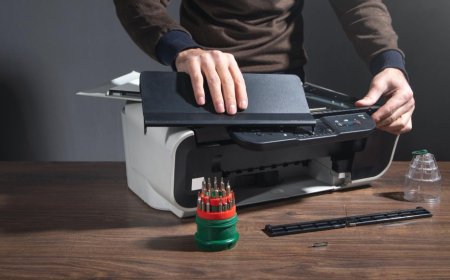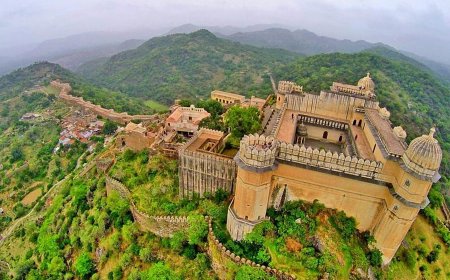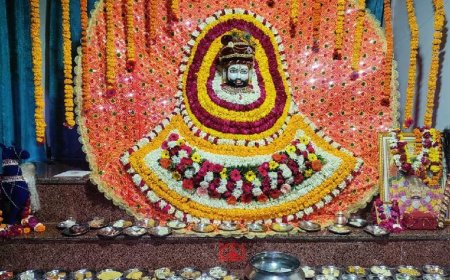You Need To Pack This Gift For Ghorepani Trekking
Planning the Ghorepani trek? Don’t forget a thoughtful gift for your guide, porter, or host. Discover practical, lightweight, and meaningful gift ideas to show appreciation on the trail.

You Need To Pack This Gift For Ghorepani Trekking
When getting ready for the Ghorepani Poon Hill trek, dont forget to pack a little gift for your guide or porter. While its not required, a small, personal gesture can show your appreciation for their hard work.
Good gift ideas include warm hats, gloves, or thermal socks. These practical items come in handy with the cold Himalayan weather, especially during the early morning climb to Poon Hill when it can get chilly. Theyre lightweight and useful, so they wont take up much space in your bag.
You could also opt for something reusable, like a sturdy insulated water bottle or a headlamp with batteries. Guides and porters often work long hours in all kinds of light and weather, so a good water bottle or headlamp is both eco-friendly and helpful. Try to avoid anything bulky or single-use.
If you want to get a bit more personal, think about bringing small gifts from your home country, like keychains, pins, or treats that represent where youre from. These make for great conversation starters and are often cherished as little keepsakes.
Finally, a handwritten thank-you note or a nice photo with a warm message can make a big impact. Its a simple touch that doesnt cost anything but means a lot.
In the end, its the thought that counts, not the price tag. These folks are key to making your trek successful by guiding and helping you along the way. A small, thoughtful gift is a great way to show your respect for all they do. Remember, its not just about what you packits about the kindness you bring that makes your journey special.
Why Bring a Gift on the Ghorepani Trek?
Bringing a gift on the Ghorepani Poon Hill trek is a nice way to show thanks to everyone who helps you along the waylike guides, porters, teahouse owners, or even fellow trekkers. The trekking experience in Nepal is about more than just the views; it's also about connecting with the culture. A small gift can show your gratitude and might even spark new friendships in a place where kindness means a lot. For many locals, a thoughtful gesture, no matter how small, can brighten their day. It's not about splurging but being sincere. A simple, useful item can provide comfort or kick off a friendly chat. In return, you might find yourself with great memories and new friends on the trail.
Cultural Context: What Gifts Mean in Nepal
In Nepal, gifts often symbolize respect and appreciation. While theyre not expected from travelers, thoughtful gifts are usually welcomed with open arms. People here care more about the intention behind the gift than how much it costs. Offering something practical or meaningful is a sign of warmth and humility. In places like Ghorepani, where many locals live simply, useful gifts can be especially appreciated. These gifts can also help break the ice and lead to interesting conversations. However, it's best to avoid flashy or expensive items, as they might make people uncomfortable. Keeping it simple and practical will ensure your gesture is received well.
Gifts for Local Hosts and Teahouse Owners
Teahouse owners and local hosts are crucial for a pleasant trekking experience, providing food and shelter in challenging conditions. A small gift can add a personal touch to your stay. Items like warm gloves, solar-powered lights, or English-language children's books for their families can mean a lot. These things can be hard to find in remote areas. You could also bring a little souvenir from your homelike local sweets, pins, or postcardsthat can kindle some fun conversations. It's best to steer clear of cash gifts, unless its a tip for great service. A thoughtful item shows you appreciate their hospitality beyond just business.
Practical Gifts for Fellow Trekkers
Sharing the trail with other trekkers can create a special bond, and a simple, practical gift can lift someone's spirits. Things like blister pads, energy bars, reusable hand warmers, or spare trekking socks can help if someone is feeling fatigued or has a small problem. If you have extras like sunscreen, purification tablets, or a spare carabiner, offering to share can help build camaraderie. These small acts of kindness can turn into some of the most memorable moments on the trail, making the trek more enjoyable for everyone involved.
Eco-Friendly Gift Ideas for the Trail
Going green with your gifts can be especially valuable on treks like Ghorepani since sustainability is increasingly important. Think about practical items like stainless steel water bottles, biodegradable soap, bamboo toothbrushes, or solar lights. Not only do these items serve a purpose, but they also promote environmental awareness in the communities you visit. Cloth shopping bags or reusable food wrappers can also help cut down on plastic waste in areas where trash management is tricky. By giving eco-conscious gifts, you're showing that you care about the environment, which the locals likely value too.
Small Items with Big Impact: Lightweight & Useful
When you're trekking, every ounce matters, so it's smart to pick small, lightweight gifts that pack a punch. Things like compact flashlights, microfiber towels, hand warmers, lip balm, or insulated drink sleeves can be a lifesaver for someone dealing with the cold or exhaustion. Multi-use tools, like tiny utensils or foldable cups, are also great choices. These handy gifts are easy to carry and can be given out to fellow trekkers, porters, or hosts. Despite their size, they can provide valuable comfort or convenience when it's needed the most. Choosing small, practical gifts allows you to keep your pack light while still being generous.
Gifts to Share with Porters and Guides
Porters and guides play a key role in your trekking adventure, often carrying heavy loads and ensuring your comfort and safety. A thoughtful gift at the end of your trek can show your appreciation. Good options include quality headlamps, trekking socks, warm gloves, or power banksthings they can use on future trips. Reusable water bottles or warm hats are also high on the list of appreciated items in the cold mountains. While tips are also common and welcomed, a personal gift can truly add a warm touch. If you can, include a short thank-you note or a group photo. It's these simple gestures that can brighten someone's day.
Souvenirs from Home: Whats Appreciated
Souvenirs from your home can be wonderful gifts, especially for guides, hosts, or fellow trekkers. Think of small, personal items that show off your culture, like keychains, local candies, coins, pins, or magnets. These can lead to fun conversations and are often cherished for their uniqueness. Simple toys like stickers or crayons (in moderation) can bring joy to kids in teahouse families. The connection is often more important than the item itself, so avoid fragile or perishable things. Sharing a little piece of your world can create lasting friendships.
What Not to Gift: Avoiding Cultural Missteps
While gift-giving is often appreciated in Nepal, there are some items you should steer clear of to avoid misunderstandings. Cash gifts are generally a no-go unless they're clear tips for services. It's also best to avoid alcohol or cigarettes, as they may not be well-received, especially in remote or religious areas. Don't give used clothing or low-quality items, as they might come off as unwanted leftovers. Also, avoid giving out sweets or toys directly to kids, as it might encourage begging. Stick with simple, respectful gifts that show you truly appreciate the culture.
How to Pack and Present Your Gift Thoughtfully
Packing your gift for the Ghorepani trek takes a bit of thought. Choose lightweight, durable items and keep them in a separate pouch or zip-lock bag to prevent damage. When its time to give it, present it with a friendly smile and a few genuine words of thanks. If you can, give the gift privately so others don't feel left out. The best time for guides or porters is usually the last day of the trek. A simple thank-you note adds a thoughtful touch. By presenting your gift with care, youll turn a simple gesture into a special memory.
What should I pack for trekking?
When getting ready for the Ghorepani Poon Hill trek, it's important to pack light but smart. Start with moisture-wicking base layers and throw in a warm fleece or down jacket, since it can get chilly in the mornings and evenings. A waterproof jacket is a must in case of unexpected rain. Bring at least two pairs of hiking pants and a few quick-dry shirts, along with thermal underwear for those colder nights. Comfortable hiking boots that are already broken in are essential, and youll also want some sandals or camp shoes to kick back in after trekking. Dont forget things like sunglasses, a hat, gloves, and several pairs of socks. A 25- 35L backpack should be good for your gear, while a smaller daypack is useful if youre hiring a porter. Other important items include sunscreen, water bottles or a hydration system, trekking poles, a headlamp, toiletries, a power bank, and a basic first-aid kit.
How much does the Ghorepani trek cost?
The cost of the Ghorepani Poon Hill trek can vary based on your travel style, whether you use a guide or a porter, and if you book through a trekking agency. On average, budget travelers can expect to spend about $ 25- USD 40 per day, which covers accommodation in tea houses, meals, and other basic expenses. Hiring a licensed guide will usually run you $25-$30 a day, while a porter will cost about $15-$20 a day. Remember to factor in permit fees: the Annapurna Conservation Area Permit (ACAP) costs around NPR 3,000 and the TIMS card around NPR 2,000 (which is about $35 total). Overall, a 4-5 day trek generally costs between $200 and USD 400, depending on your choices and how many are in your group.
Do I need a sleeping bag for Poon Hill Trek?
Yes, it's a good idea to bring a sleeping bag for the Poon Hill trek. Most tea houses provide blankets, but they might not always be warm enough, especially in the colder months. A three-season sleeping bag rated to about -5C (23F) will keep you cozy at higher elevations like Ghorepani. If you're trekking in winter (DecemberFebruary), you might need a warmer, four-season bag. During warmer months, a lighter bag can work, but having your sleeping bag will ensure better hygiene and comfort throughout the trek.
What is the difficulty level of the Ghorepani Poon Hill trek?
The Poon Hill Ghorepani trek is considered moderate, making it suitable for beginners who are reasonably fit. The highest point is Poon Hill at 3,210 meters (10,531 feet) it's high enough for amazing views but not so high that it poses a major risk for altitude sickness. Youll be walking for about 4 to 6 hours each day for several days, and there are some steep sections, especially the long staircase up to Ulleri. You dont need any special skills, but the trail can be physically challenging due to the elevation gain. With some basic preparation and a good pace, most hikers find the trek manageable and very rewarding.





























